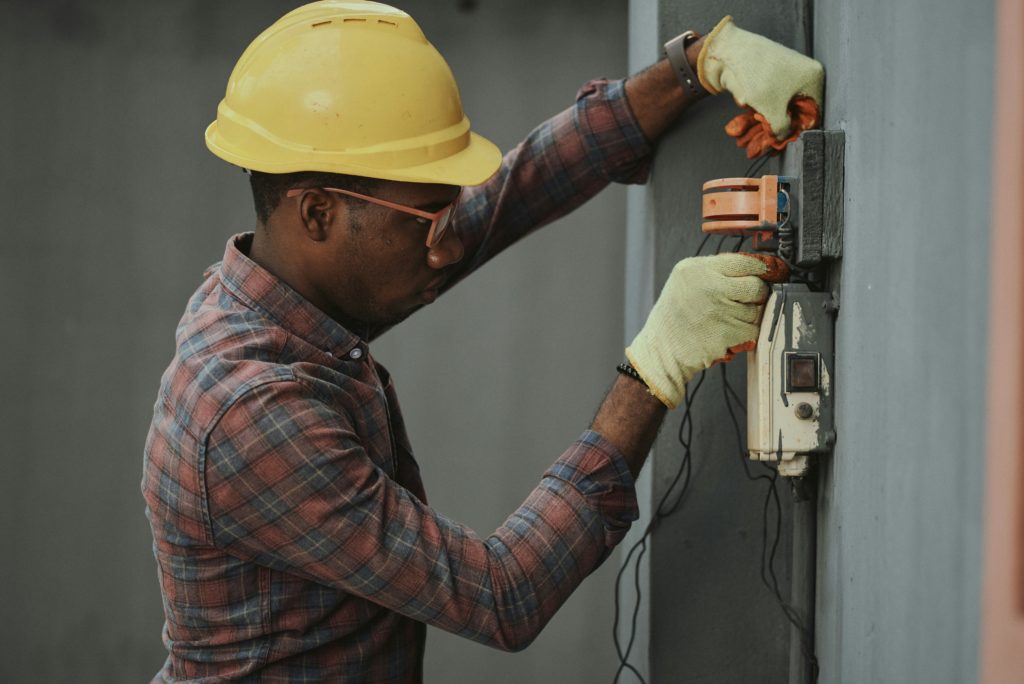Are you considering a career as a journeyman electrician? You’re making a great choice! This is a field that not only offers job security but also gives you the opportunity to work on challenging, hands-on projects every day. Whether you’re intrigued by the thought of wiring homes, troubleshooting electrical problems, or simply want to make a good living, becoming a journeyman electrician could be the right path for you.

In this blog post, we’ll walk you through the steps you need to take, the benefits of this career, and answer some of the most frequently asked questions. Read on to learn how you can become a successful journeyman electrician and embark on a journey filled with growth and opportunity.
Table of Contents
What is a Journeyman Electrician?
A journeyman electrician is a skilled tradesperson who has completed the necessary apprenticeship and training to work independently on a wide variety of electrical systems. These professionals are licensed to perform tasks such as installing electrical wiring, troubleshooting problems, and adhering to safety regulations. A journeyman electrician can work in both residential and commercial settings, making it a versatile and rewarding career option.
Steps to Becoming a Journeyman Electrician
1. Get Your High School Diploma or GED
The first step to becoming a journeyman electrician is to obtain a high school diploma or GED. This is essential because many of the core subjects, such as math and science, are critical in electrical work. Courses like algebra and physics will be especially helpful as you progress in your training.
2. Enroll in an Electrician Training Program
Next, it’s important to enroll in an accredited electrician training program. These programs provide the foundational knowledge required to understand electrical systems and the practical skills you’ll need in the field. You can typically find these programs at technical schools or community colleges.
3. Complete an Apprenticeship
An apprenticeship is the backbone of becoming a journeyman electrician. Most apprenticeships last between four to five years, during which time you’ll work alongside experienced electricians. You’ll gain valuable hands-on experience while learning how to troubleshoot electrical problems, install systems, and ensure safety compliance. Apprenticeships combine on-the-job training with classroom instruction, ensuring that you learn both theory and practical skills.
4. Get Licensed
Once you’ve completed your apprenticeship, you need to pass a licensing exam to become a journeyman electrician. This exam will test your knowledge of electrical theory, the National Electrical Code (NEC), and local building codes. Passing this exam is a significant milestone, as it qualifies you to work independently in your state.
Why Become a Journeyman Electrician?
1. Job Security
The demand for electricians is high and continues to grow. As technology evolves, the need for skilled electricians will only increase, making this a stable career option. Being a journeyman electrician means you’ll have access to numerous job opportunities, both in residential and commercial sectors.
2. Competitive Salary
A journeyman electrician earns a competitive salary, often with the opportunity for overtime. With additional certifications and experience, you can increase your earnings and even move into higher roles like master electrician or electrical contractor.
3. Hands-On Work Environment
If you enjoy working with your hands, troubleshooting problems, and being out in the field, a journeyman electrician’s job is perfect for you. Every day brings new challenges, ensuring your work never gets monotonous.
4. Room for Advancement
Becoming a journeyman electrician is just the beginning. With experience, you can work your way up to become a master electrician, an electrical contractor, or even start your own business. The sky’s the limit!

Skills Needed to Become a Successful Journeyman Electrician
- Problem-Solving Skills: A journeyman electrician must be able to diagnose and troubleshoot issues efficiently.
- Attention to Detail: Electrical work requires precision to avoid mistakes that could lead to safety hazards.
- Good Communication: You’ll need to communicate effectively with clients, contractors, and team members.
- Physical Stamina: The job can be physically demanding, requiring you to be on your feet for long periods and work in various environments.
Tools of the Trade
As a journeyman electrician, you’ll use various tools to complete your job efficiently. These include:
- Multimeters: Used to measure voltage, current, and resistance.
- Wire Strippers: Essential for removing insulation from wires.
- Fish Tape: Used to pull wiring through walls and conduit.
- Power Drills: For creating holes in various materials to run wiring.
Common Challenges for Journeyman Electricians
Like any job, being a journeyman electrician comes with its challenges. Some common issues include:
- Dealing with Difficult Clients: Not every client will understand the complexities of electrical work, and some may be difficult to deal with.
- Physical Demands: The job can be strenuous, involving lifting heavy objects and working in cramped or awkward spaces.
- Staying Updated with Codes: Electrical codes frequently change, so it’s crucial to stay updated to ensure that all work complies with current standards.
Tips for Aspiring Journeyman Electricians
- Stay Curious: Electrical work is constantly evolving. Stay curious and keep learning about the latest technologies and practices.
- Network: Connecting with other electricians can provide valuable insights, job opportunities, and mentorship.
- Prioritize Safety: Electrical work can be hazardous, so always prioritize safety and follow best practices to protect yourself and others.
Frequently Asked Questions About Journeyman Electricians
1. What is the difference between a journeyman electrician and a master electrician?
A journeyman electrician is someone who has completed their apprenticeship and is licensed to work independently. A master electrician, on the other hand, has additional experience and certifications that qualify them to oversee projects, pull permits, and take on more complex jobs.
2. How long does it take to become a journeyman electrician?
It typically takes about four to five years to complete an apprenticeship and become a journeyman electrician. This timeline can vary depending on the specific requirements of your state and the availability of training programs.
3. Can I become a journeyman electrician without an apprenticeship?
No, an apprenticeship is a critical part of becoming a journeyman electrician. It provides the hands-on experience and classroom instruction necessary to develop the skills needed for the job.
4. What is the average salary of a journeyman electrician?
The average salary for a journeyman electrician can vary based on location, experience, and industry. Generally, they can expect to earn between $50,000 and $70,000 per year, with the potential for more if they work overtime or take on additional certifications.
5. Do journeyman electricians need to renew their licenses?
Yes, most states require journeyman electricians to renew their licenses periodically. This may involve continuing education courses to ensure that you stay up-to-date with changes in electrical codes and safety regulations.
Conclusion
Becoming a journeyman electrician is an excellent career choice for those who enjoy hands-on work, solving complex problems, and seeking a stable and rewarding career. The journey to becoming a journeyman requires dedication, but the rewards are worth the effort. With job security, good pay, and opportunities for advancement, this career path offers a bright future for those willing to put in the work.
If you’re interested in becoming a journeyman electrician, start by exploring local apprenticeship opportunities, enrolling in a training program, and staying committed to learning and growing in this dynamic field. The electrical industry is always in need of talented professionals, and there’s never been a better time to start your journey.



